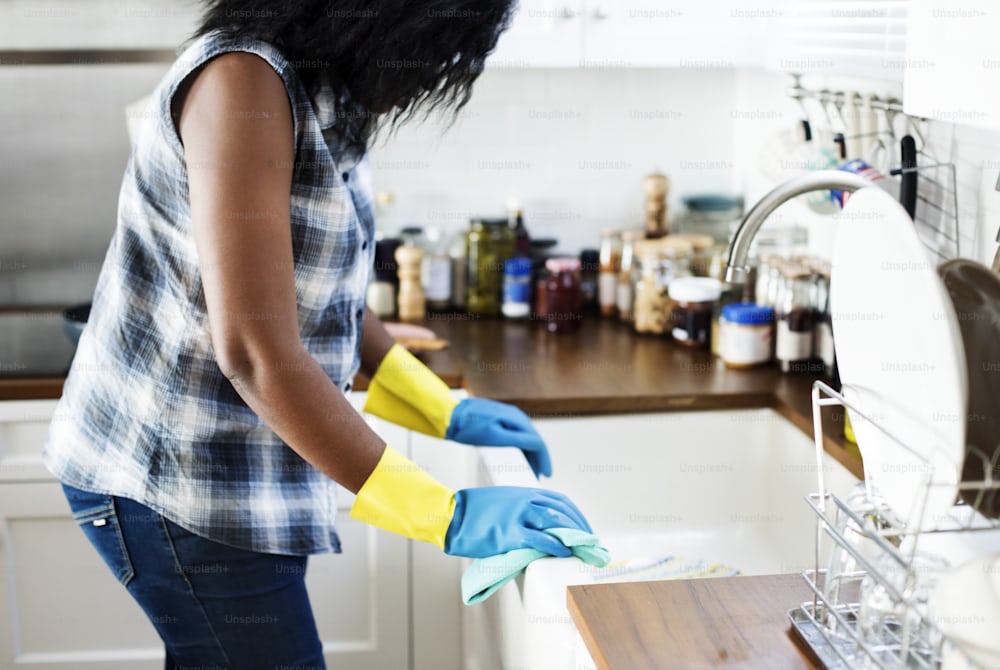Six months ago, if you had told me I’d be employing a cleaner, I would have laughed. Growing up in a household where self-sufficiency was valued above all else, the thought of paying someone to clean my home seemed almost frivolous. Yet here I am, writing about how this decision has transformed my daily life in ways I never anticipated.
Initial Doubts and Reservations
The decision wasn’t made lightly. For years, I’d managed to keep my two-bedroom flat in a reasonable state despite working long hours at a demanding job. The weekend cleaning ritual had become so ingrained that I barely questioned whether there might be a better way to spend those precious hours of free time.
Several factors finally pushed me to consider a professional cleaner from Diamond Home Support in Norwich. A promotion at work meant longer hours and more responsibility. My aging parents needed more of my attention and weekend visits. And if I’m honest, I was simply tired of spending my limited downtime engaged in endless battles against dust and grime.
Still, concerns lingered. Would having a stranger in my home feel uncomfortable? Would they judge the state of my bathroom or the questionable organization of my kitchen cupboards? And since the service I was considering required using my cleaning supplies and equipment, was it really worth the expense?
Making the Leap
After weeks of deliberation and recommendations from two trusted colleagues, I contacted a local cleaning service (Diamond Home Support in Norwich) with positive reviews. The initial consultation was more comprehensive than I expected. The company representative asked detailed questions about my cleaning preferences, problem areas in the home, and any specific products I preferred or avoided due to allergies or environmental concerns.
We settled on a weekly two-hour clean, focusing on the bathroom, kitchen, and general dusting and vacuuming of living areas. The cost came to £40 per week – not insignificant on my budget, but potentially manageable if I made some adjustments elsewhere.
My assigned cleaner, Emma, arrived punctually for our first appointment. I’d spent the previous evening frantically tidying, embarrassed about the prospect of someone seeing the true state of my flat. Emma immediately put me at ease, explaining that her job was to clean, not to judge, and that pre-cleaning for the cleaner was a common but unnecessary ritual.
The Adjustment Period
The first few weeks required some adaptation on both sides. I needed to ensure my vacuum cleaner was in working order and that I had adequate supplies of cleaning products. There were a few hiccups – a miscommunication about which products to use on the wooden flooring, and my forgetting to mention that the bathroom extractor fan needed regular dusting.
I also had to adjust to the idea of someone else having access to my personal space. At first, I found myself hiding certain items before Emma’s visits – the self-help books on my bedside table, and the collection of takeaway menus in the kitchen drawer. Eventually, I realized the futility of this and relaxed into a more natural arrangement.
Noticeable Differences
By the one-month mark, the benefits had become undeniable. The most obvious was the consistent level of cleanliness throughout my flat. Areas I had typically neglected – the tops of kitchen cabinets, the skirting boards, the limescale on shower fixtures – were now regularly addressed.
The bathroom, in particular, reached a level of cleanliness I hadn’t managed to maintain since moving in. The grout between the tiles, which had stubbornly held onto grime despite my occasional scrubbing efforts, gradually returned to its original color. The glass shower screen, previously plagued by water spots, now remained consistently clear.
In the kitchen, surfaces that I’d cleaned but never quite to a professional standard began to truly shine. The hob, the splashback, and the sink – all areas that see daily use and abuse – maintained a level of cleanliness that made meal preparation more enjoyable.
The Ripple Effect
What I hadn’t anticipated were the secondary benefits that extended beyond just having a cleaner home. Without the looming weekend cleaning marathon, my free time genuinely felt free. I resumed swimming on Saturday mornings, started visiting a local farmers’ market regularly, and even joined a book club that met on Sunday afternoons – all activities that had previously seemed impossible to fit in.
My mental state improved as well. The background stress of knowing that cleaning tasks were accumulating throughout the week disappeared. Coming home to a tidy space after a long day had a surprisingly significant impact on my ability to relax and decompress.
Perhaps most unexpectedly, I found myself becoming tidier between Emma’s visits. Knowing someone else would be in my space created a subtle accountability that encouraged me to maintain better daily habits – washing dishes promptly, wiping counters after cooking, and hanging up clothes rather than draping them over chairs.
Challenges and Solutions
The arrangement hasn’t been without its challenges. There was a three-week period when my vacuum cleaner broke, and the replacement I ordered was delayed. Emma did her best with a brush and dustpan, but the results weren’t comparable. This highlighted the importance of maintaining my end of the bargain by providing functional equipment.
There have also been occasional weeks when Emma was ill or had family emergencies. These absences made me realize how quickly I’d grown accustomed to the regular cleaning schedule, and how much I noticed when it was disrupted.
Communication proved essential in addressing the few issues that arose. When I noticed that the inside of the microwave was being overlooked, a simple note left on the counter resolved the situation. Similarly, when I changed laundry detergents and wanted the new one used for cleaning certain surfaces, a brief conversation was all it took to adjust our routine.
The Financial Perspective
At £160 per month, the cleaning service represents a significant line item in my budget. To accommodate this expense, I’ve made several adjustments: reducing takeaway meals, bringing lunch to work more consistently, and being more thoughtful about impulse purchases.
When I calculate the true value, however, the service pays for itself many times over. Eight hours of my time each month have been freed up – time that I now spend on activities that enhance my well-being and relationships. The reduction in stress and the pleasure of living in a consistently clean space add intangible but real value to my daily life.
Unexpected Lessons
This experience has taught me something about the arbitrary lines we draw between tasks we’re willing to outsource and those we feel obligated to handle ourselves. We think nothing of paying someone to cut our hair, fix our plumbing, or prepare our food at restaurants – yet cleaning has traditionally fallen into a different category.
I’ve come to see that recognizing the value of my time isn’t self-indulgence but a rational economic decision. My skills and time are better applied to my professional work and personal relationships than to scrubbing tiles, and Emma’s expertise in cleaning far exceeds my own.
Looking Ahead
Six months into this arrangement, I can’t imagine returning to my previous routine. The benefits far outweigh the costs, both financial and psychological. I’ve recommended similar services to several friends, though I’m careful to acknowledge that what works for me might not work for everyone.
If you’re considering hiring a cleaner but hesitating due to concerns about cost or perceived extravagance, I’d encourage a trial period. Many services offer month-to-month arrangements without long-term commitments. The difference between a passably clean home that constantly requires your attention and a thoroughly clean home that serves as a genuine sanctuary might surprise you.
For me, this has never been about luxury or status. It’s simply about recognising that time is our most precious resource, and choosing carefully how we spend it is one of the most important decisions we make.



